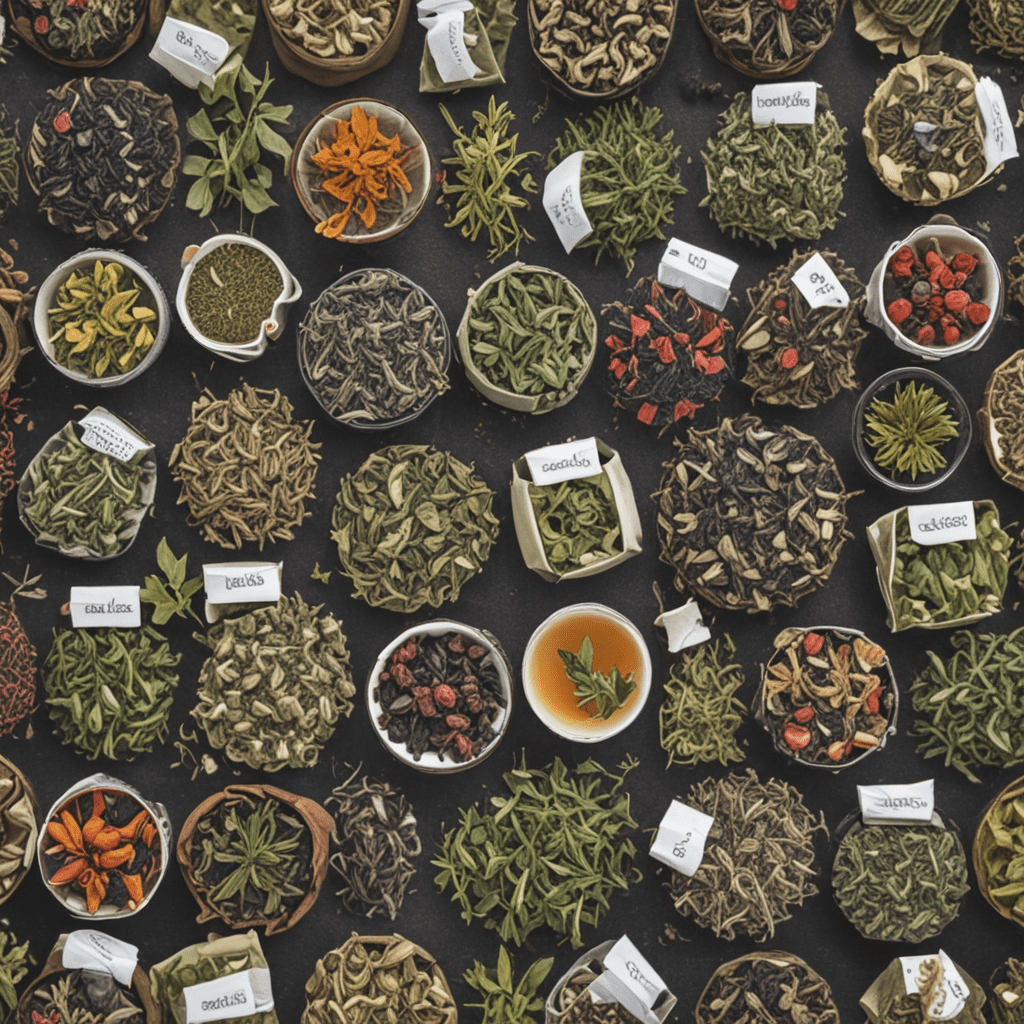
The Power of Herbal Teas
In today's fast-paced world, stress has become an unavoidable part of life. Its relentless grip can manifest in various physical and psychological ailments, leaving us feeling overwhelmed, anxious, and unable to cope. Herbal teas, a time-honored tradition, offer a natural and gentle way to combat stress and restore a sense of tranquility.
Understanding Stress and Its Impact
Stress is a natural response to challenging or threatening situations, triggering a cascade of hormonal and physiological changes. When experienced excessively or chronically, it can lead to a myriad of health issues, including sleep disturbances, digestive problems, headaches, and weakened immune function. Moreover, chronic stress can exacerbate mental health conditions such as anxiety and depression.
The Efficacy of Herbal Teas for Stress Management
Herbal teas have been used for centuries to promote relaxation, reduce anxiety, and improve sleep quality. Their soothing effects stem from a rich array of bioactive compounds, including flavonoids, terpenes, and alkaloids, which work synergistically to combat stress. Research has consistently demonstrated the effectiveness of herbal teas in managing stress levels and alleviating related symptoms.
Lavender: The Soothing Herb for Relaxation
Lavender, renowned for its calming aroma, is a potent herb for stress relief. Its active compound, linalool, has been shown to reduce anxiety, promote relaxation, and improve sleep quality. Lavender tea is particularly effective in reducing stress-induced tension and promoting a sense of tranquility.
Chamomile: The Calming and Sleep-Inducing Herb
Chamomile, with its delicate floral aroma, is another highly effective herb for stress management. It contains flavonoids, such as apigenin, which bind to benzodiazepine receptors in the brain, producing a calming effect. Chamomile tea has been shown to reduce anxiety, improve sleep quality, and alleviate stress-related digestive issues.
Lemon Balm: The Anxiety-Reducing and Uplifting Herb
Lemon balm, with its zesty, lemony flavor, is a powerful herb for reducing anxiety and improving mood. Its active compounds, including rosmarinic acid and eugenol, have been shown to inhibit the activity of GABA receptors in the brain, leading to calming effects. Lemon balm tea can effectively reduce symptoms of anxiety, stress, and restlessness, while also boosting mood and cognitive function.
Valerian Root: The Natural Tranquilizer
Valerian root, known for its sedative properties, is an effective herb for managing insomnia and anxiety. Its active compounds, such as valerenic acid and hesperidin, interact with GABA receptors in the brain, promoting relaxation and reducing anxiety. Valerian root tea can help improve sleep quality, reduce stress levels, and alleviate anxiety-related symptoms.
Passionflower: The Relaxing Herb for Mind and Body
Passionflower, with its delicate floral aroma, is a calming herb that has been used for centuries to promote relaxation and relieve stress. Its active compounds, including chrysin, apigenin, and rutin, work synergistically to reduce anxiety, improve sleep quality, and alleviate muscle tension. Passionflower tea is particularly effective in managing stress-related insomnia and anxiety.
Adaptogenic Herbs: Supporting Balance and Resilience
Adaptogenic herbs, such as ashwagandha, rhodiola, and ginseng, are unique in their ability to help the body adapt to stress and promote overall well-being. These herbs contain active compounds that support the body's physiological and psychological response to stress, helping to increase resilience, reduce anxiety, and improve mood. Adaptogenic herbs can be incorporated into herbal tea blends to enhance their stress-relieving effects.
Practical Tips for Incorporating Herbal Teas into Your Routine
- Choose high-quality herbal teas made from organic, whole herbs.
- Drink 1-3 cups of herbal tea per day, especially during stressful periods.
- Experiment with different herbs to find what suits you best.
- Enjoy herbal teas as a soothing bedtime ritual to promote relaxation and sleep.
- Consult with a healthcare professional before using herbal teas if you are taking any medications or have any underlying health conditions.
FAQ
Are herbal teas safe to consume regularly?
Yes, herbal teas are generally safe to consume regularly in moderation. However, it is always advisable to consult with a healthcare professional before using any herbs, especially if you are pregnant, breastfeeding, or have any health concerns.How long does it take for herbal teas to work?
The effects of herbal teas can vary depending on the herb used and individual factors. Some herbs, such as chamomile or lavender, may provide immediate calming effects, while others, like adaptogenic herbs, may take several weeks to build up in the body and produce noticeable results.Can herbal teas replace prescription medications?
Herbal teas cannot replace prescription medications, but they can be a complementary approach to managing stress and anxiety. It is essential to consult with a healthcare professional before discontinuing any prescribed medications and to discuss whether herbal teas may be a suitable addition to your treatment plan.
- Are there any side effects associated with herbal teas?
Herbal teas are generally well-tolerated, but some herbs may have potential side effects. For example, valerian root may cause drowsiness and lemon balm may interact with certain medications. Always read the label carefully and consult with a healthcare professional before using any herbal teas.


